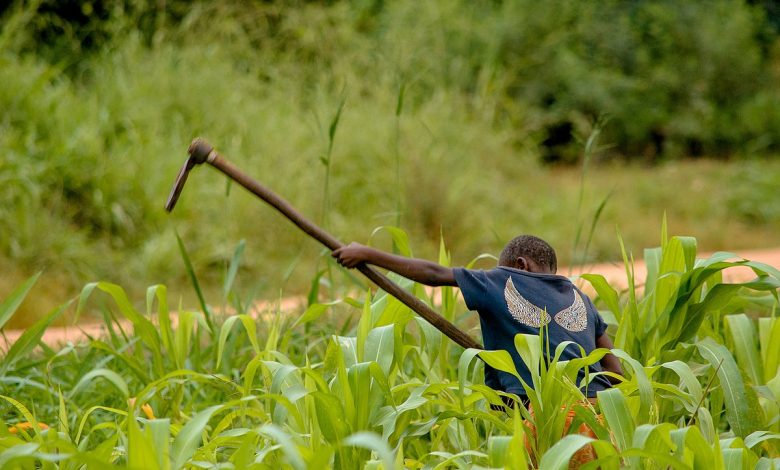COLOMN: THE AGRARIAN QUEST. How do we create a new army of youth farmers

WITH our sequel around farmers and farming in Tanzania, today we will shed some light on youth farmers. This is a neglected yet powerful group that if will be successfully attracted to agriculture it’s without a doubt that the situation will be well better than it’s at the moment.
We will try to crack down the big question, why do youth hate agriculture? The biggest challenge that the country is facing on the socio-economic realm is the ballooning unemployment rate to youth aged between 18 and 24.
With an increasing birth rate and decreasing mortality rate, this category of the population is likely to expand even further compounding the challenge more, if no serious interventions will be made to alleviate is altogether.
This comes at the backdrop of what happened about two weeks ago in which President Samia Suluhu Hassan launched a Building Better Tomorrow – Youth In Agriculture (BBT-YIA) initiative, in Dodoma, in which hundreds of selected youths will be sent to an incubator before sent to different block farms in a number of regions in the country. An occasion that was not meant to be ground-breaking it has turned out to be so.
The following are the reasons:
Perception
There has been a very dark perception among youth regarding agriculture. To many, agriculture is the outdated practice, reserved for the failed and elderly, not meant for greatness. Partly, they have a reason. For many years, our type of agriculture has been subsistence farming, in which all farmers have been doing is to make sure that production does not go below household food requirements.
If anything exceeds that line then it will be used to cater for other basic needs. This shouldn’t surprise anyone, youth are never aliens or born in the vacuum, they are born and bred by the societies.
ALSO READ: COLUMN: WEEKLY INVESTMENT TALK. An overview of new DSE trading rules
These societies have the inherent capacity to shape their way of perceiving things by imparting positive or negative views; which after a considerable amount of time they become beliefs, habits and traditions. Until they are neutralised nothing can change because it is the attitude that sways the altitude and never the opposite, which off-course takes a lot of efforts to achieve that.
And all the communities in the world have this onus because there is no one that is safe from this malady although their problems might be bent in other realms as opposed to the one, we are talking about.
Land question
While it is highly touted that Tanzania is among the African countries with a big unutilised chunk of land that is suitable for agriculture, few remembers that owners of that fertile land are largely not youths. And even if they decide to procure it needs capital to acquire them.
No wonder those who are in a position to practice farming are corporate youths–whose number is small–who make use of their salaries to inject in agribusiness.
These can afford to buy farms in locations of their choice.
Finance
As stated above, the level of agriculture we practice is another roadblock to youths, seeing is believing or so they say. It is simply not appealing to work on it.
Thanks to technological advancement and exposure, Tanzanian youths are seeing what other developed countries are doing, from tilling the land to marketing, and they realise that their practice is not as rudimentary as ours and that to realise a profitable farming then it must be a capital intensive one. Capital is useful, not only in helping acquire land for farming, is instrumental in buying inputs, like insecticides, improved seeds, tractors and others.
But capital, in Tanzania, is expensive at best and inaccessible at worst and when a loan request is meant for investment in agriculture by youths the situation gets even murkier. On annual basis Tanzanian banks issues about of 20tri/- for loans. Of this amount, only 7.0 per cent take the agriculture route.
This problem calls for innovation in developing financial products that will not only suit the profit-making view of the investors in the banks but reduce the difficulties that young people have to face if they are to realise their potential in agriculture.
Until these challenges are addressed, the energetic, ambitious but needy young generation will continue to be threat to the country and not an opportunity to make our sector vibrant, our country prosperous and food secure.






847025 385456This put up is totaly unrelated to what I used to be looking google for, nevertheless it was indexed on the very first page. I guess your performing something right if Google likes you adequate to location you at the very first page of a non related search. 733338